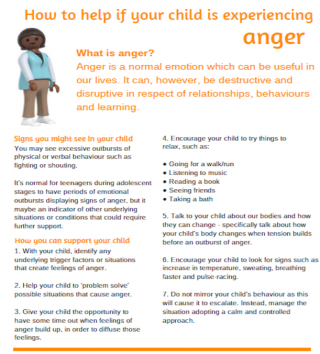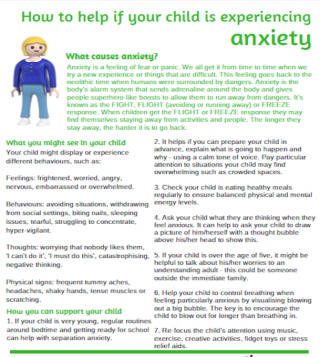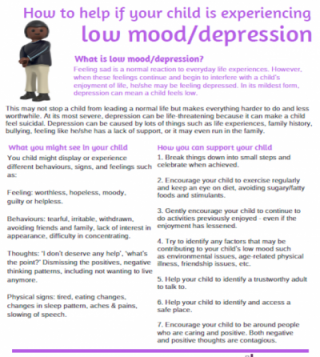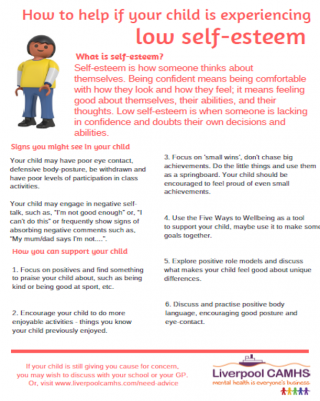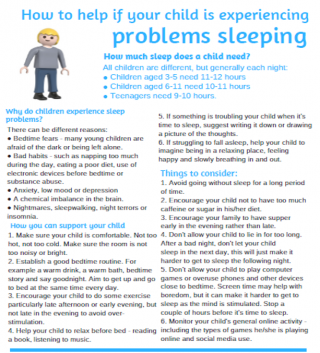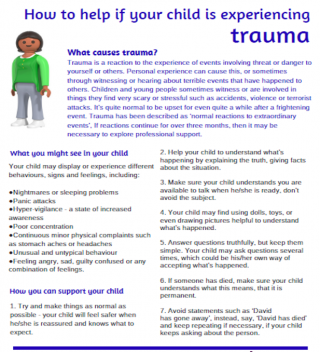Overview

The emotional wellbeing and mental health of children is an absolute key focus for all staff at Sprowston Infant School. In order for our children to become successful and engaged learners, they need to have resilience, self-belief and confidence to take on all new experiences and challenges, and, most crucially perhaps, to be happy. This is embedded as part of our ‘6 Cs’ curriculum. Positive mental health is promoted explicitly in RSHE lessons throughout the year, but ensuring the children develop what we hope are life-long attitudes happens every single day, through our interactions with the children, being role models and in the provision of a pupil-centred curriculum that matches their needs.
What is Mental Health?
We all have mental health. Mental health is about our feelings, our thinking, our emotions and our moods. Looking after our mental health and wellbeing is important. We all have small feelings every day; these can sometimes feel strong and overwhelming, whether happy or sad, but they go away before too long. Sometimes we experience big feelings; these feel strong and overwhelming for a long time. They stop us doing what we want to in our lives.
Who are the Wellbeing team at Sprowston Infants?
The following staff lead our Wellbeing Team:
| Mr Rob Edwards – Headteacher | Safeguarding and Inclusion lead, Designated Safeguarding Lead |
| Miss Emma Wyatt – Deputy Headteacher | SEND coordinator, Senior Mental Health Lead, Alternative Designated Safeguarding Lead, Pastoral Support |
| Mr Andy Palmer – Teacher | Alternative Designated Safeguarding Lead |
| Ms Angela Storey – Teacher | RHSE Lead |
| Natasha Eglington – HLTA | Designated Safeguarding Lead |
Books to support children
At Sprowston Infants we use books as a hook for our learning and this also applies to our learning in wellbeing and mental health. Here are some books we use and some that we have read and feel could help address mental health and wellbeing.




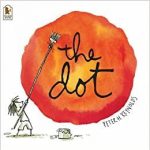
The Dot
This story is about self-esteem and how one little girl builds her self-esteem by painting just one dot.

Rosie Revere Engineer
This is a book about believing in yourself and not giving up in pursuing your passion.

Felix After the Rain
This is a story about Felix who carries around his sadness in a big black suitcase. When the case is accidentally opened there is a big storm, but after this there is sunshine. The story shows that acknowledging sad feelings can be scary but we feel better afterwards.
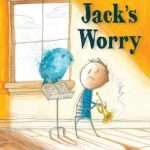
Jack’s Worry
A great book which shows that sharing our worries and fears makes them smaller or go away.
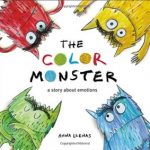
The Colour Monster
We used this book after Covid to demonstrate to the children that feeling different emotions is normal, healthy and something we recognise but we don’t worry about. They can then relate to which monster they might be feeling like at different times or on different days.

On Sudden Hill
This story deals with what happens when a new boy wants to play with two best friends. This will particularly help children who may join the school during the year.
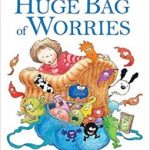
The Huge Bag of Worries
This is a good book to deal with the worries that children have. As adults it can be easy to dismiss what a child worries about as insignificant, and telling them to stop worrying about it doesn’t really work! This book is a useful reminder to us grown-ups that a worry for a child can have a huge impact, as well as helping children to understand what to do when they do have a worry.

Grandad’s Island
This book addresses the death of a grandparent in a really lovely way.
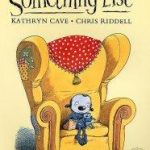
Something Else
Something Else teaches children that being different isn’t something to be afraid of – and that, actually, you can always find like minded souls.
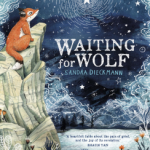
Waiting for Wolf
This is a lovely story about loss and grief. When Wolf becomes a star, Fox grieves but learns that memories of their special times together will always be with her.
Helping your child
These are useful tips to supporting your child to have positive mental health and wellbeing.
Posters from Liverpool CAHMS
Zones of Regulation
In school we use Zones of Regulation to help support children to name emotions and identify how they are feeling. We then support the children with these emotions. Ideally children will be in the green zone of emotions but as with everyone our emotions and mood changes throughout the day and in different situations. With the zones we aim to support children to return to green if they are feeling different emotions outside of the green zone. This is so they are ok and ready to learn. Being in the green zone doesn’t mean you have to be happy – being ‘ok’ or ‘fine’ is good too.
Here are the zones we use in school and some examples of how children may be supported to come back to the green zone.
The four coloured zones and associated emotions are:
Ideas on what you can do to help become calm and settled
These may change for different children, remember we are not all the same and will require different support.
Regulation techniques:
Here are some useful links that can help you and your child. The agencies below offer support, groups, information and guidance.
Parenting Information
Parent Talk 1:1 chat
Web: https://parents.actionforchildren.org.uk/chat/?src=header_button
Down-to-earth parenting advice you can trust. We’re on hand to support parents when you need us. Browse our articles on the most common parenting questions from our experts. Or talk one-to-one with a qualified parenting coach about anything that’s worrying you. It’s all free, and no topic is too big, small, or embarrassing.
· Mental health and wellbeing
· Behaviour
· Stages and development
· Additional needs and disabilities
· Education
· Parenting and relationships
· Sleep
· Nutrition and healthy eating
Parenting Smart (Place2Be)
Web: https://parentingsmart.place2be.org.uk/
The children’s mental health charity, Place2Be, has launched a new website aimed at helping parents with typical situations they can find themselves in with their children.
Advice can be found on over forty topics including:
- Understanding sibling rivalry
- My child is lying, what does it mean, what should I do?
- My child has trouble going to sleep
- My child says ‘I hate you!’
Coping with Anger
Info: See leaflet below.
If your child is feeling angry there are many ways that you can try to see what helps your child calm down. These are some tips and phrases that may find useful when you or your child is angry.
This May Help (NHS)
Web: Home | ThisMayHelp
Information and short videos on a variety of subjects including child’s mental health; self-harm; gaming and online activity; teenagers safety; eating disorders; school avoidance
NSPCC
Web: https://www.nspcc.org.uk/keeping-children-safe/support-for-parents/
Info: See Positive Parenting guide below.
We know how challenging it can be to balance all the demands that parents have to cope with (some tips to help).
Parent Workshops
www.nsft.nhs.uk/parent-workshops/
Our psychology in schools team run a program of parent workshops throughout the year to provide up to date advice and guidance on how parents and carers can support the young people in their life. All the workshops are recorded for you to watch at any time.
Use the hyperlinks below to find out more about the workshop and get the link to the video on YouTube:
- Supporting young people with challenging behaviour
- Tools to manage uncertainty and building resilience in young people
- Supporting young people with anxiety
- Supporting young people with low mood
- Building Resilience – managing the next steps
- Supporting our children and adolescents with sleep
- Understanding the teenage brain – Supporting our teenagers with emotions
- Supporting your child to manage their big feelings (suitable for children aged 0 to 11 years)
- Understanding young peoples self-harm
- Getting the best out of your relationships with your person
Parenting Courses
These are always helpful with providing boundaries and guidance for dealing with unwanted behaviour.
Solihull Parenting Course
Web: https://www.justonenorfolk.nhs.uk/online-learning
Access code: JON70
The Solihull Approach ‘Understanding Your Child’ is a free online course available for everyone who cares for children aged 0-18 years. It’s there to help you recognise emotions in yourself and your child to see how they can impact on behaviour. The course can help increase your confidence as a parent or carer so that difficulties encountered in everyday life are reduced by seeing the child’s behaviour from their point of view. A closer relationship between you and the child can develop, resulting in a calmer and happier household for everyone.
Triple P – Positive Parenting Program
Web: Successful kids, happier families – Online Parenting Programme | Triple P (triplep-parenting.uk.net)
Children reacting in unexpected ways? It’s been a tough few years. Many families are facing challenges, and we’re here to help.
Positive Behaviours Strategies
Positive Behaviour Strategies (PBS) is a programme for families of children with additional needs produced by our partners in Norfolk Community Health and Care and Family Action. It was developed originally to give group support to families of children who had been referred for assessment by a specialist team. These sessions have been developed during the Covid-19 outbreak to offer support to all families with additional needs.
During the course you will hear the term neurodevelopmental disorder which refers to conditions such as autism (autistic spectrum disorder, ASD), and attention deficit hyperactivity disorder (ADHD). It is really important to remember that having a name for your child’s condition does not alter how your child behaves.
This course will help you think about the messages your child is trying to communicate to you and some practical skills and strategies to help you manage your child in a positive way.
Dads Matter
Dads Matter is a free 12-week course supporting fathers across Norfolk.
- Most of the dads taking part have a child open to Early Help or Social care, but they don’t have to be.
- Dads can refer themselves or can be referred by their social worker or another agency such as Housing, Health and Education.
- It gets dads talking to each other
- It runs for 12 weeks and each weekly session is two hours long
- The sessions are run by two male Dads Matter Facilitators who are experienced in leading group work
- The course is held in the evening and afternoons in different venues across Norfolk
- We will look at many aspects of child development to understand why children behave as they do – from the terrible twos to troubled teens
- We will use practical tools and explore techniques such as mindfulness to help us manage our own and our children’s behaviour and emotions
- Each week there will be opportunities to reflect and share our experiences with the group and get support from other dads
- Example of the subjects we cover in this course content video The Horse and Jockey
Find out more about what you will learn in course information.If you have any questions or wish to come along, Email: dadsmatter@norfolk.gov.uk
Books to help the children with their feelings
The Colour Monster: A gentle exploration of feelings for young and old alike –The Colour Monster: Amazon.co.uk: Llenas, Anna: 9781783704231: Books
How are you feeling today: A great dip-in book where children can choose a feeling that relates to them and then turn to the page that provides child-friendly strategies for dealing with that feeling – How Are You Feeling Today?: A picture book to help young children understanding their emotions: Amazon.co.uk: Potter, Molly, Jennings, Sarah: 8601404301544: Books)
A Volcano in My Tummy: Offers engaging, well-organized activities which help to overcome the fear of children’s anger which many adult care-givers experience (6-13 years) – https://www.amazon.co.uk/Volcano-My-Tummy-Children-Caregivers/dp/0865713499
The Huge Bag of Worries Book (4-8 years): A funny and reassuring look at dealing with worries and anxiety, to be used as a spring board into important conversations with your child – https://www.amazon.co.uk/Huge-Bag-Worries-Virginia-Ironside/dp/0340903171
My Hidden Chimp (6-10 years) – Offers parents, teachers and carers some ideas and thoughts on how to help children to develop healthy habits for life – https://www.amazon.co.uk/My-Hidden-Chimp-author-Paradox/dp/1787413713
Children and their families’ mental health and wellbeing has always been important at Sprowston Infant School. In current times it has become even more important, with many of us facing additional pressures and changes which can lead to uncertainty. The aim of this page is to signpost resources that will benefit all of us all the time, but especially now.
No-one should ever feel alone in this and it is vital that we all seek help when needed.
As a parent/carer, I am struggling with my own Mental Health. Is there support I can access?
Your wellbeing is also so important to us, The Anna Freud Centre has a wealth of information for supporting the wellbeing of children, families and parents. The website is easy to access and has some really useful tips. The link below takes you to advice to help with your own self-care:
https://www.annafreud.org/parents-and-carers/self-care-for-parents-and-carers/
The GP should be able to offer advice and support and talking to a trusted friend can help too, so they can check in on you. However if you don’t feel you have someone to talk to then the organisations below offer crisis support for parents and carers:
AFC Crisis Messenger – text AFC to 85258 for free 24/7 crisis support – https://www.annafreud.org/on-my-mind/afc-crisis-messenger/
Family Lives – charity offering crisis support for parents and carers – https://www.familylives.org.uk/
First Response Line Norfolk – https://www.nsft.nhs.uk/first-response/
Telephone the helpline on 0808 196 3494 If you are feeling unsafe, distressed or worried about your mental health.
Useful Contacts
MindEd for families – www.mindedforfamilies.org.uk
Learning resource about the mental health of children, young people and older adults.
Young Minds – www.youngminds.org.uk
The UKs leading child and adolescent mental health charity. The info for parents is especially good.
Thinkuknow – www.thinkuknow.co.uk
Thinkuknow is the education programme from NCACEOP, a UK organisation that protects children online. The parent /carer section has advice, tips and guides about how to keep children safe online.
Nelson’s Journey – https://nelsonsjourney.org.uk/ 01603 431788
Nelson’s Journey supports children and young people in Norfolk who’ve experienced the death of a significant person. We provide a range of resources and services, and accept referrals from families and professionals for those who may need our support.
Leeway – https://www.leewaysupport.org/
Leeway is an independent charity providing support to adults, young people and children who are experiencing domestic abuse in Norfolk and Suffolk. They operate eight safe houses and people experiencing domestic abuse and their children are welcome to stay as long as necessary to secure a future free from a dangerous partner.
National Debtline – https://nationaldebtline.org/ Freephone: 0808 808 4000
Debtline, offers free, confidential and independent advice to help people deal with their debt problems and regain control of their finances.
The Family Mediation Trust – https://www.thefamilymediationtrust.org/
The Family Mediation Trust is a charity dedicated to helping those going through divorce, separation and disputes to families across the East of England.
Change, Grow, Live – https://www.changegrowlive.org/
This is a national health and social care charity. They can help you with challenges including drugs and alcohol, housing, justice, health and wellbeing.
Childline – www.childline.org.uk 0800 11 11
Website has tips and advice on a wide range of issues and suggested activities to do if you are feeling anxious.
Norfolk and Waveney mental health and well-being service – www.justonenorfolk.nhs.uk
This service doesn’t require a referral and you can contact them and ask for advice and support.
Phone: 0300 300 0123 or text Parent line on: 07520 631590
We hope you find this helpful. Remember we are always here as a listening ear, point of contact or to offer advice and support!
Mental Health and Wellbeing is an important part of how we support children in school. We have recently become a partner school with the charity MIND.
www.norfolkandwaveneymind.org.uk
We will be participating in Children’s Mental Health week. Watch this space to see what we got up to!


